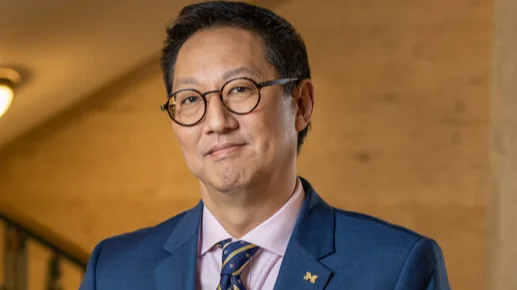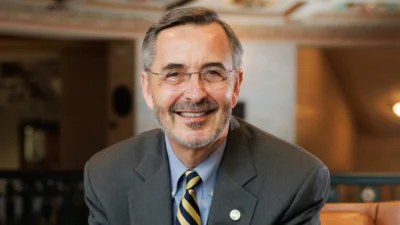Santa J. Ono, Ph.D. President at University of Michigan - Ann Arbor | Official website
Santa J. Ono, Ph.D. President at University of Michigan - Ann Arbor | Official website
University of Michigan experts have provided insights and reactions to the U.S. Supreme Court’s recent ruling that grants partial immunity to former President Donald Trump, while remanding the case to a lower court.
Leah Litman, a professor of law and co-host of the podcast “Strict Scrutiny,” commented on the implications of the ruling: “The court has made it much harder for Jack Smith to make his case against the former president—ruling out parts of the charges entirely—and all but ensured there will not be a trial before the election.”
Barbara McQuade, a professor from the practice of law, former U.S. Attorney for the Eastern District of Michigan, and legal analyst for NBC News and MSNBC, also weighed in: “The court’s ruling means the district court will need to conduct a hearing to determine whether Trump’s conduct amounted to official or unofficial acts, leading to further delay. While this decision likely precludes a trial before the election, Jack Smith can use the remand hearing as an opportunity to show the nation the details of Trump’s alleged misconduct.”
Will Thomas, an assistant professor of business law whose research focuses on corporate and white-collar crime, highlighted how recent Supreme Court decisions have favored Trump: “The past week of Supreme Court decisions has been very good for Donald Trump, the criminal defendant. Last week in Fischer v. United States, the Supreme Court adopted a narrow reading of a Dodd-Frank-era obstruction statute, which federal prosecutors had used to convict more than 300 participants in the Jan. 6 insurrection."
Thomas continued: "The government has also charged Trump with violating this exact statute. So while it’s still possible that Trump’s behavior on Jan. 6 violated this obstruction statute even if other private citizens’ behavior did not, last week’s decision makes prosecutors’ case that much harder to prove."
"But even better news for Trump came Monday: A divided Supreme Court held in Trump v. United States that the president is immune from criminal prosecution for at least some of his official acts taken while in office. In doing so, the court’s answer pushed virtually all of the hard questions back down to the trial court: Were any of Trump’s actions leading up to and on Jan. 6 part of his official acts? Which ones? And how should a criminal trial be prosecuted in this situation? Which facts are allowed at trial, and which ones have to be excluded?"
Thomas concluded by noting: "These issues are legally and factually complex—a point the court stresses over and over in its decision to return these issues for an initial determination by the trial judge. But by giving only limited guidance on these issues, the Supreme Court’s decision has a clear upshot: The decision virtually guarantees Trump’s trial for his role in the Jan. 6 insurrection will not begin before voters decide who will be the next president of the United States.”
Contact information for each expert was provided alongside their statements.






 Alerts Sign-up
Alerts Sign-up